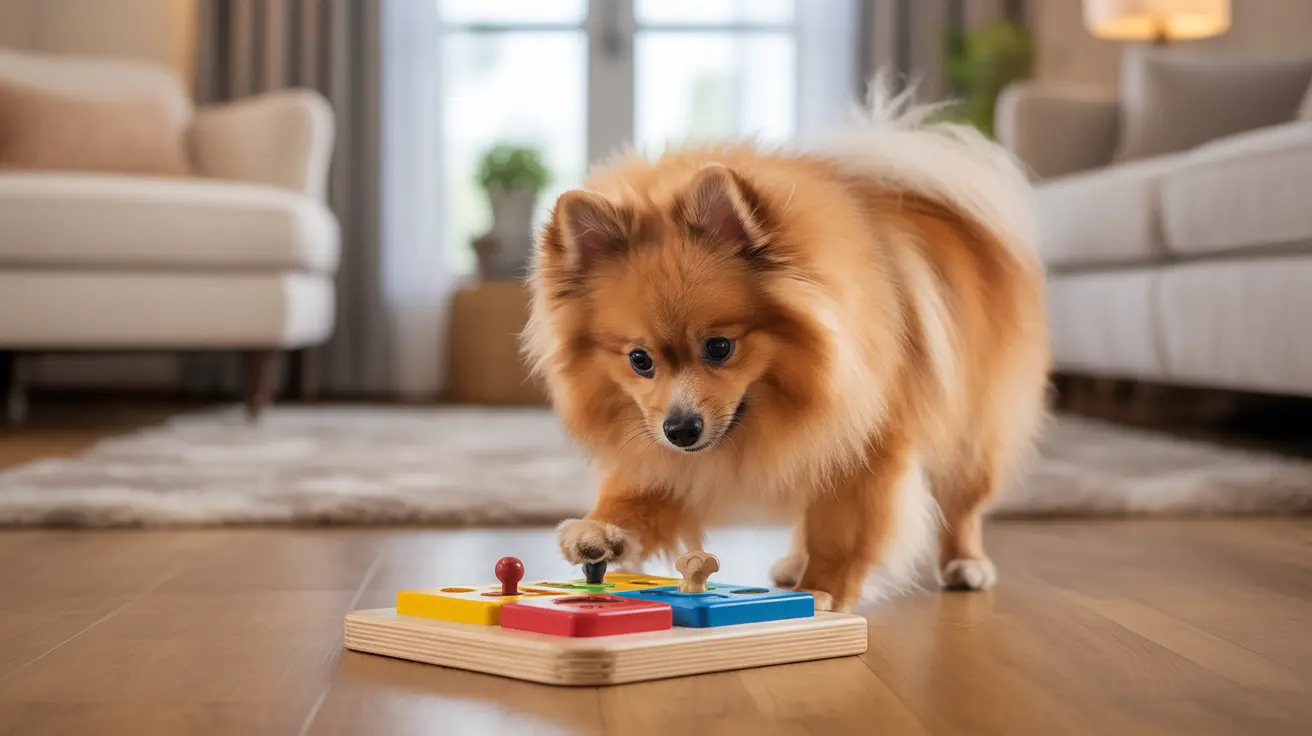Pomeranians are more than just adorable, fluffy companions - they're remarkably intelligent dogs that consistently rank among the smartest breeds in canine intelligence studies. This comprehensive guide explores the impressive cognitive abilities of Pomeranians and helps you understand what makes these tiny powerhouses so mentally capable.
As members of the "excellent working/obedience" category, Pomeranians typically rank around 23rd out of more than 130 dog breeds in standardized intelligence assessments. This impressive standing puts them ahead of many larger, well-known breeds and challenges common assumptions about toy dogs' capabilities.
Measuring Pomeranian Intelligence
According to renowned canine intelligence researcher Stanley Coren's framework, Pomeranians demonstrate exceptional learning capabilities. These bright dogs can master new commands in just 5-15 repetitions and show approximately 85% compliance on first commands - far surpassing the average dog's performance of 25-40 repetitions and 50% compliance.
Beyond simple obedience metrics, Pomeranians exhibit multiple facets of intelligence:
- Adaptive Intelligence: Strong problem-solving abilities in new situations
- Social Intelligence: Keen understanding of human emotions and social cues
- Working Intelligence: Excellence in task learning and performance
- Language Comprehension: Understanding of 165+ words on average
Training and Learning Capabilities
Pomeranians' high intelligence manifests in their outstanding trainability. These quick learners excel in various training scenarios, particularly when engaged with positive reinforcement methods. Their sharp minds and eager-to-please attitude make them excellent candidates for:
- Basic obedience training
- Complex trick training
- Agility courses
- Problem-solving games
- Interactive puzzle toys
Maximizing Mental Stimulation
To keep your Pomeranian's active mind engaged, consider implementing these enrichment activities:
- Rotating different types of puzzle toys
- Teaching new tricks regularly
- Playing hide-and-seek with treats
- Introducing scent work games
- Providing interactive feeding stations
Understanding Your Pomeranian's Cognitive Needs
While Pomeranians are naturally intelligent, they require proper mental stimulation to thrive. Without adequate cognitive engagement, these smart dogs may develop undesirable behaviors out of boredom. Regular mental exercise is just as important as physical activity for maintaining a well-balanced Pomeranian.
Their intelligence combined with an independent streak means Pomeranians need consistent, engaging training approaches that keep them motivated and focused. This balance of intelligence and independence makes them fascinating companions who continue to learn and adapt throughout their lives.
Frequently Asked Questions
How intelligent are Pomeranians compared to other dog breeds?
Pomeranians rank approximately 23rd out of 130+ dog breeds in intelligence testing, placing them in the "excellent" category. They outperform many popular breeds and are considered among the smarter toy breeds available.
How quickly can Pomeranians learn new commands and tricks?
Pomeranians typically learn new commands in 5-15 repetitions and show about 85% first-command compliance. This is significantly better than the average dog, which needs 25-40 repetitions to learn new commands.
What training methods work best for teaching Pomeranians?
Positive reinforcement training with high-value treats and enthusiastic praise works best for Pomeranians. Short, frequent training sessions help maintain their interest and prevent boredom.
What types of intelligence do Pomeranians exhibit beyond obedience?
Pomeranians show strong problem-solving abilities, excellent social intelligence, high emotional awareness, and good memory. They excel at puzzle-solving and can understand an impressive vocabulary of words and commands.
How can I keep my Pomeranian mentally stimulated to prevent boredom?
Provide various puzzle toys, teach new tricks regularly, engage in scent work games, use interactive feeders, and maintain a consistent training schedule. Regular rotation of activities helps keep their minds engaged and prevents monotony.






